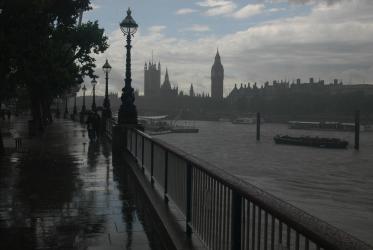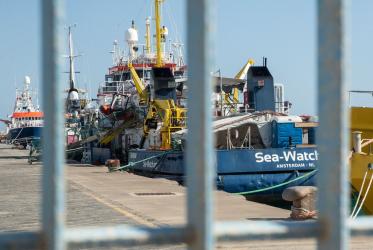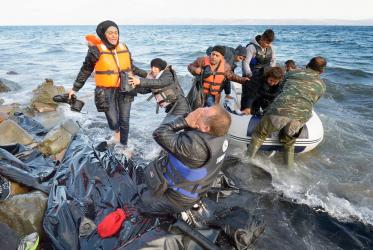Displaying 1 - 20 of 33
‘European humanitarian corridor’ proposed
02 May 2019
Faith and HIV treatment go hand in hand
06 March 2019
Christian communicators work to counter hate speech against refugees
10 December 2018
Rev. Kenneth Mtata reflects on journey of transition in Zimbabwe
20 September 2018
World conference on xenophobia, racism, and populist nationalism in the context of global migration
18 - 20 September 2018
Ergife Palace Hotel, via Aurelia 619, Rome, Italy
Conference explores Christian approach to borders
05 October 2017
Fleeing from – rather than to – a place
10 February 2016












